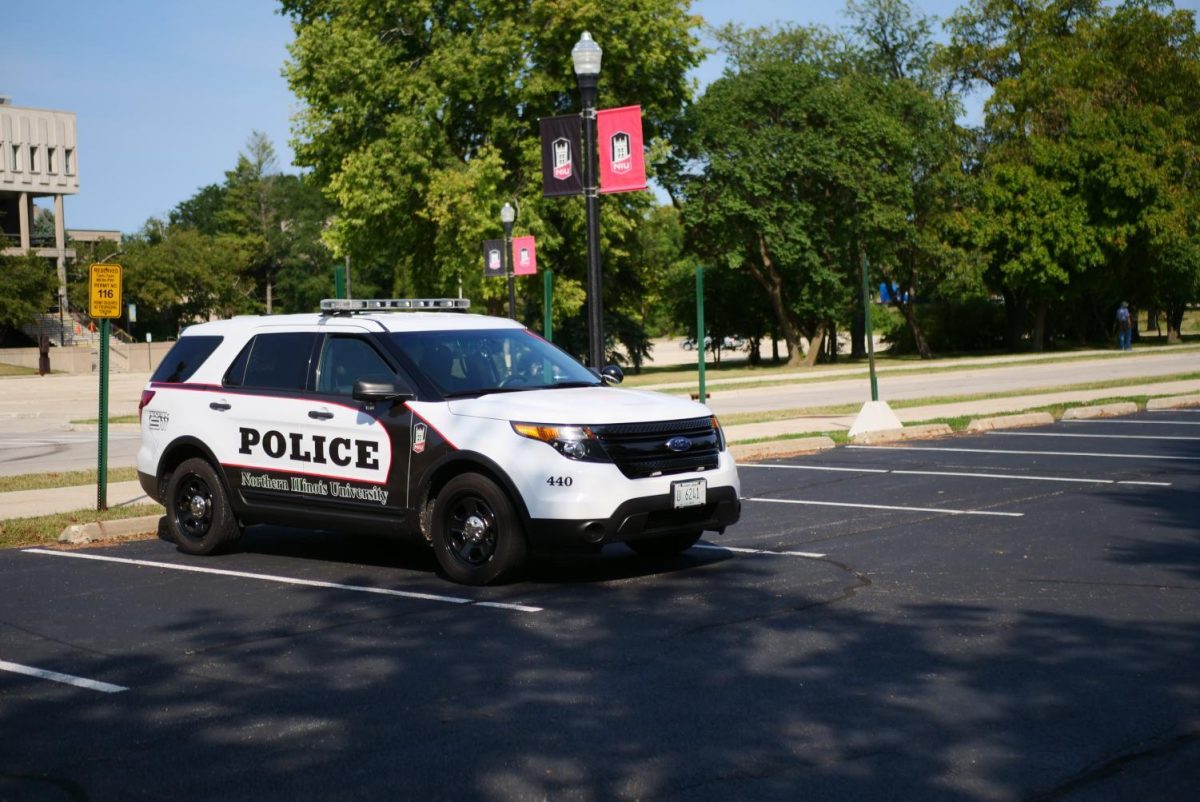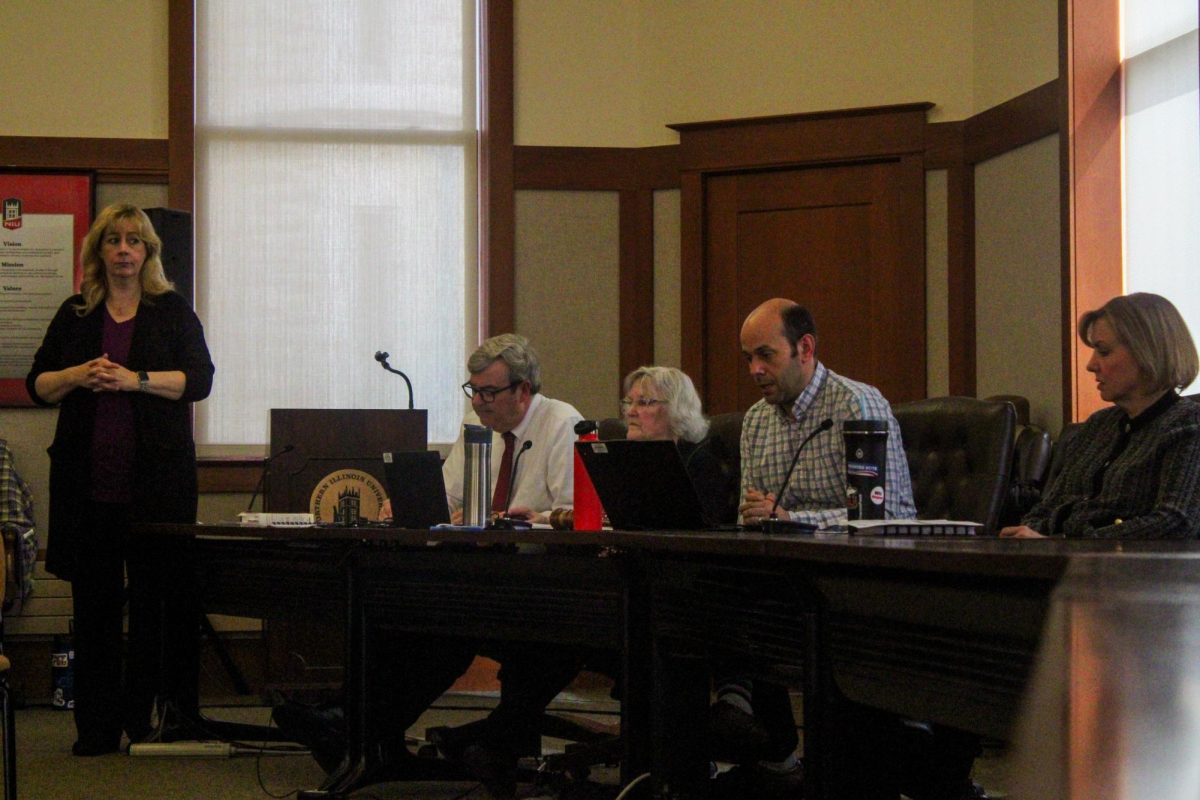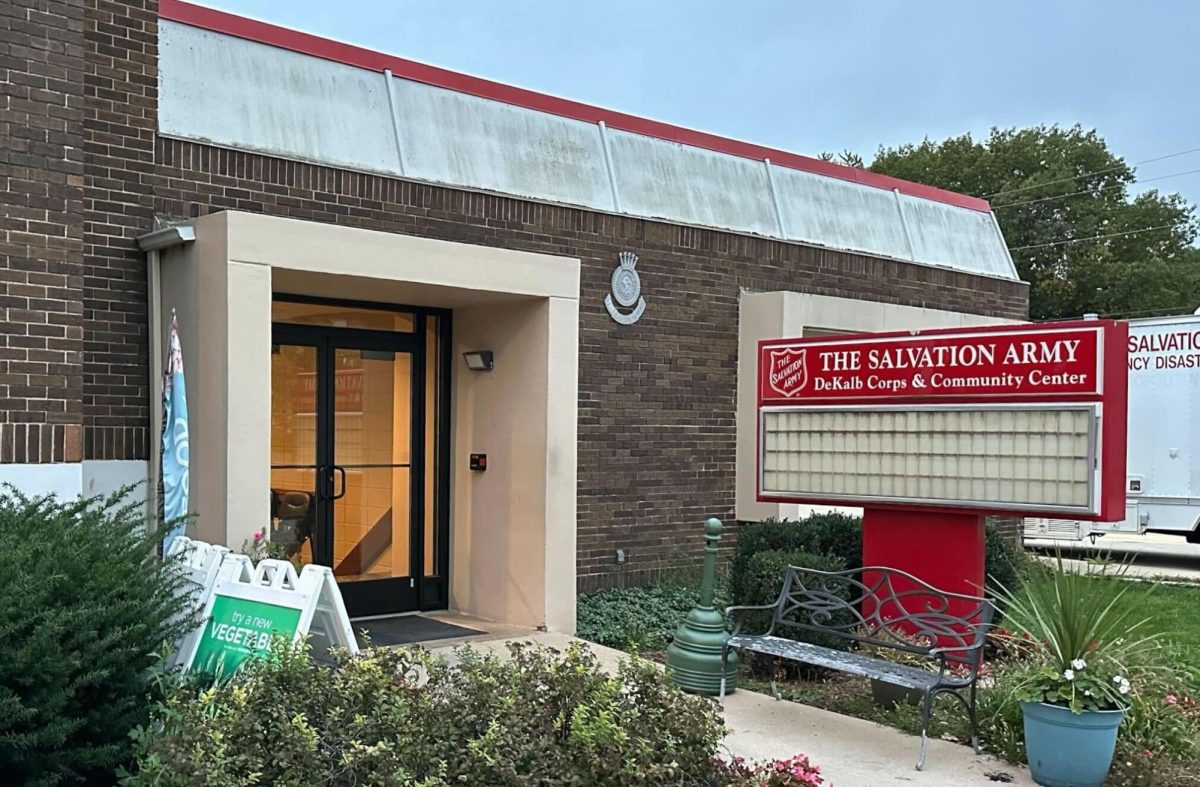DeKALB – After failing to pass a petition, the SGA made good on promises to support student concerns over the ongoing Israel-Hamas war.
A resolution condemning any behavior that invalidates and endangers those grieving from the recent events of the Israel-Hamas war was passed with a vote of 11-2-1.
The original resolution condemned all civilian casualties and cited decades of oppression under the Israeli regime as the origin of the war. It also acknowledged student disappointment in the university and SGA for failing to recognize the ongoing crisis.
SGA also called upon NIU to release a statement about the repercussions of misinformation and to acknowledge the human rights violations against the Palestinian people and the innocent lives lost.
That resolution was tabled at a previous SGA meeting to give senators time to include perspectives from Jewish NIU students and organizations.
The resolution has since been amended to condemn all acts and words of hate, including Islamophobia and antisemitism and condemns any behavior that would endanger or invalidate those who may be grieving from the recent events of the war. The resolution also promises to provide students with mental health and informational resources in its support for Palestinian, Arab, Muslim, Jewish and Israeli people.
All previous legislation mentioning the political and historical background of the war, Israel’s relationship with Palestine, and the call for NIU to release a statement or petition have been removed. The changes reflect the SGA’s move toward emphasizing student safety from hate crimes.
“Several students have approached various senators about not feeling safe due to various elements of the conflict between Israel and Palestine,” Deputy Speaker Chris English said. “This resolution says we hear you; we validate your concerns and condemn any behavior that perpetrates hate.”
A resolution to terminate SGA Vice President Kaylin Lee was unanimously passed. Speaker of the Senate Cole Hensley said that the matter was discussed with SGA President Olivia Newman who agreed with the decision.
“She hasn’t worked a single day this semester,” Hensley said.
The SGA appointed Sergeant-at-Arms Niko Bereolos as chairperson of the Board of Elections.
“I accepted the nomination for chair of the BOE because last election the BOE failed,” Bereolos said. “They failed in advertising for the election, and they failed to staff in-person voting. They planned to do it, but they failed to implement it because they were lazy.”
Bereolos plans to increase SGA election turnout with more in-person polling locations on campus.
“I believe under my leadership we can do better,” Bereolos said. “I will get in-person polling as much as possible. People need to see that there is a government on campus, and we can’t just rely on people in the (Holmes) Student Center to vote.”
Sophomore political science major Khardell Phelps was elected the new director of governmental affairs. Phelps is a community advisor for Patterson Hall West and the director of community outreach for the Black Student Union.
“These positions have shaped me into the leader I am today and have given me the opportunity to serve my community,” Phelps said.
Senator Alexia Musgraves said she felt confident Phelps’ experience was a good fit for the role.
“I don’t think we’ll find another candidate this fit for this position,” Musgraves said.
ELECTION CHANGES
A bill to change how write-in candidates are nominated was also passed. Previously, write-in candidates had to pre-register within 48 hours of elections. The bill expands voting options by allowing a popular candidate to register within 48 hours after the polls close.
“Let’s say Manny (Emmanuel Corpuz) wasn’t running in the election,” English said. “People might still write in Manny’s name; and with enough signatures, we would reach out to him and say ‘you need to fill out all these forms to receive that.’ It would give students making an impact on campus an opportunity.”
The SGA election updates continued as a bill to change elections from a First Past the Post system to a Ranked Choice system which passed.
First Past the Post is an election system where voters can choose only one candidate, and the winner is the candidate with the most votes.
“First Past the Post election systems are objectively one of the worst for fairness and equity, especially as you get past three candidates,” English said.
Ranked Choice allows voters to rank candidates by preference, and the outright winner is the candidate with more than 50% of the first-choice votes.
SGA meetings are open to the public and held at 2 p.m. on Fridays, with locations posted in the senate’s agendas. SGA minutes and intent to speak forms are available on Huskie Hub.














